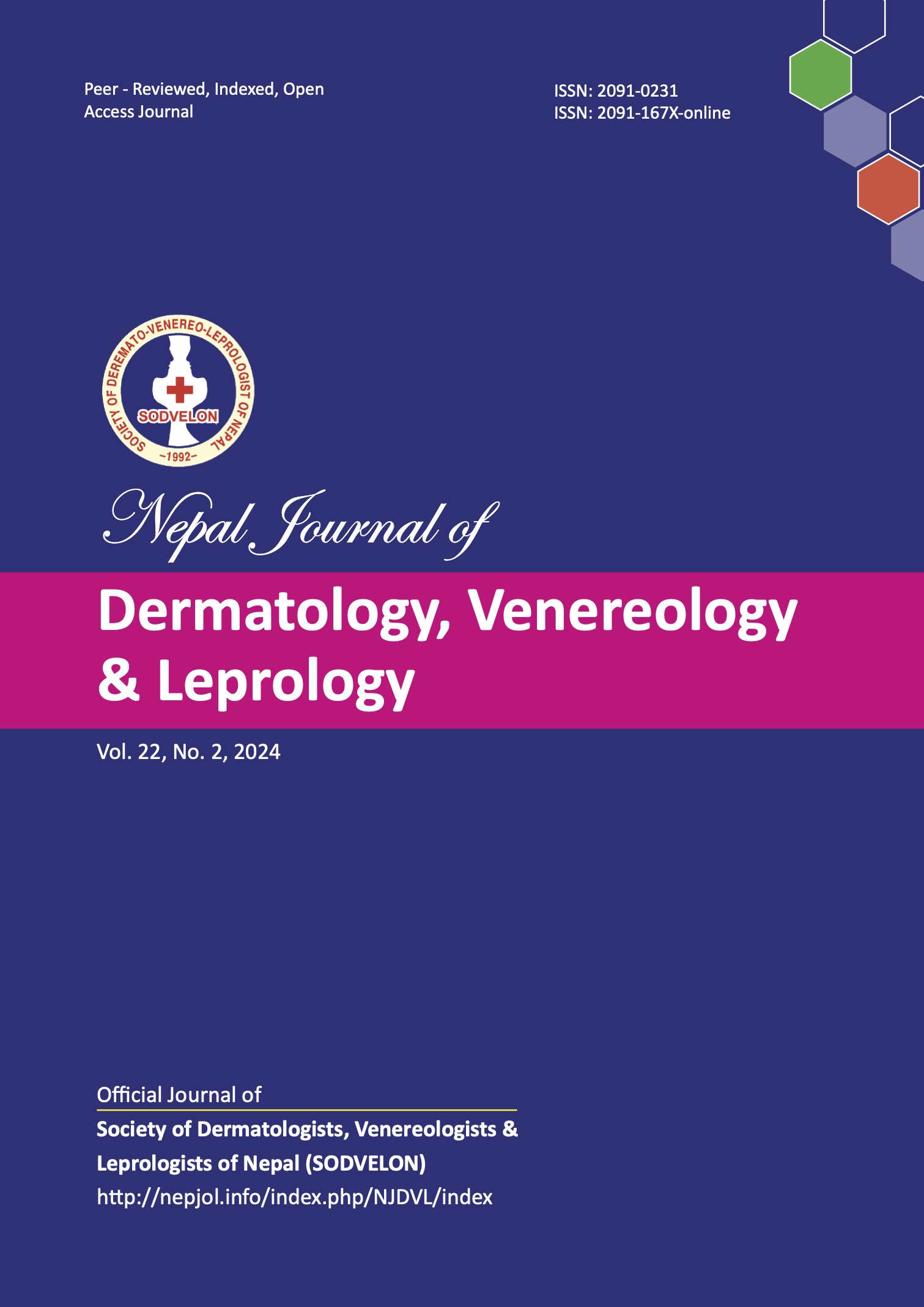A Comparative Study on Efficacy and Safety of Methotrexate Versus Apremilast in the Management of Chronic Plaque Psoriasis: Tertiary Care Center Based Interventional Study
DOI:
https://doi.org/10.3126/njdvl.v22i2.67949Keywords:
Apremilast, Chronic plaque psoriasis, Efficacy, MethotrexateAbstract
Introduction: Psoriasis is a common skin presentation in dermatology OPD. Methotrexate and apremilast are frequently used for the management of chronic plaque psoriasis.
Objectives: To compare the efficacy and safety of methotrexate versus apremilast for the management of chronic plaque psoriasis
Materials and Methods: This was an interventional study conducted among 41 patients. The patients were divided into 2 groups. Group A received apremilast 10-30mg twice daily, and group B received methotrexate 10-15mg once weekly for 16 weeks. The patients were evaluated at 4, 8 and 16 weeks. PASI score, DLQI score and adverse effects were documented in every follow-up.
Results: The PASI score significantly reduced from 17.22 ± 8.61 (baseline) to 3.90 ± 2.92 (16 weeks) in group A and 18.64 ± 9.02 (baseline) to 5.95 ± 2.89 (16 weeks) in groups B (P = < 0.001). At 16 weeks, the mean PASI score (3.90 ± 2.92) in group A was significantly less than group B (5.95 ± 2.89) (P = 0.02). The percentage reduction of mean PASI from baseline to 16 weeks was 77% in group A and 68.07% in group B. PASI 75 was achieved by 11 patients (52.30 %) in group A and 8 patients (40 %) in group B at 16 weeks. Both groups had a significant decrease in DLQI as compared to baseline at 16 weeks, with insignificant differences between the two groups during each visit. No severe side effects were seen in both groups.
Conclusion: Both treatments can be considered in treating chronic plaque psoriasis. However, apremilast showed more efficacy than methotrexate.
Downloads
Downloads
Published
How to Cite
Issue
Section
License
Copyright (c) 2024 Society of Dermatologists, Venereologists and Leprologists of Nepal

This work is licensed under a Creative Commons Attribution 4.0 International License.
Copyright on any research article is transferred in full to Nepal Journal of Dermatology, Venereology & Leprology upon publication. The copyright transfer includes the right to reproduce and distribute the article in any form of reproduction (printing, electronic media or any other form).




